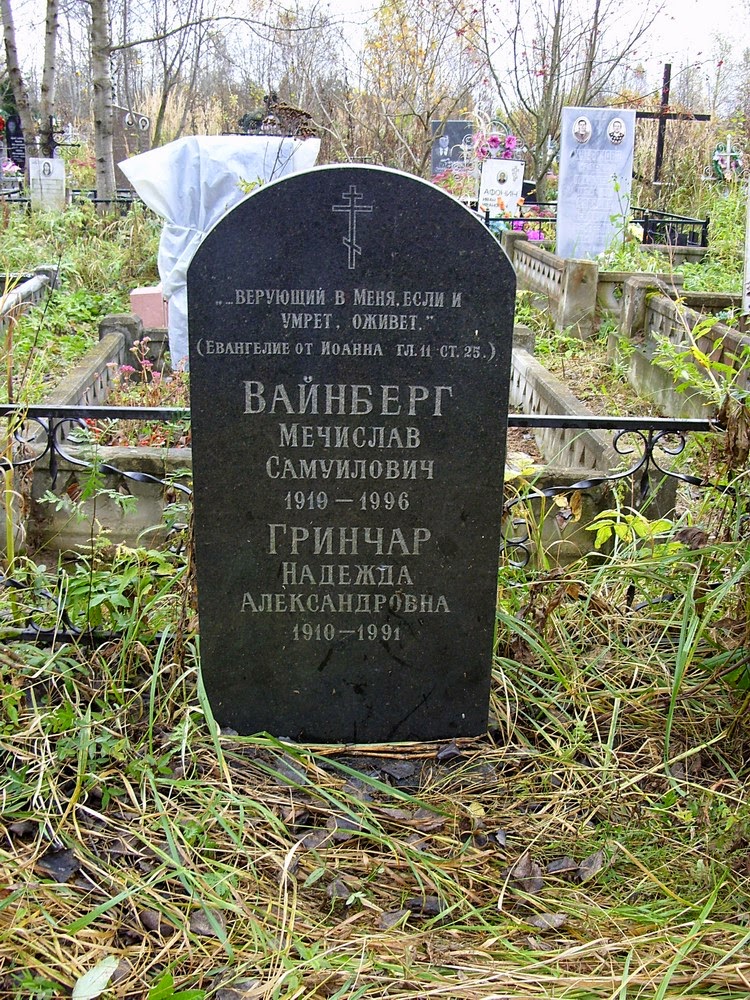The
Melodiya label is legendary in Russian circles. This is hardly surprising. From their founding in 1964, up until the fall of the Soviet Union, they held the monopoly on recordings in Russia. They still have a formidable back catalogue, in addition to a huge number of archive recordings slowly being released. (See my post on the
Melodiya online store
here). This gem of a CD is one such archive recording, released in this package for the first time.
In addition to it being a handsome CD design, the quality of the recordings is good, considering that all three works were recorded in the 1960s. For the most part, this disc is useful to the Weinberg-collector as an easily-sourced taste of Orchestral recordings from the Soviet era. There are several other features that mark it as distinct, but the majority of it is passable, compared to several other modern recordings.
The Music
The disc opens with Weinberg's two Sinfoniettas, Op. 41, and Op. 74. The first was a great critical success for Weinberg, one of his first pieces to attract wider praise. (In the 1948 discussions of the Soviet Composer's Union, this piece was singled out for praise as 'an example of reorietation' - Weinberg's use of Jewish themes was held aloft as an excellent response to previous criticism of flirtations with Modernism in his music). Try the fourth movement, 'Giocoso Vivace' as a taster, with its splendid Jewish mode dance-like opening.
The Second Sinfonietta couldn't be more different, with a noticeably more sombre tone. In many ways, it can be regarded as an actual symphony, though with scoring for chamber orchestra. The differences between the two Sinfoniettas demonstrate the creeping stylistic shifts present during Weinberg's music over this time.
The disc concludes with Weinberg's Seventh Symphony, a popular choice, given the numerous recordings released in recent years. The work is notable for featuring a prominent Harpsichord solo part, bordering on the demands of a concerto. Such an instrumentation may suggest several trends of neo-classical composition, but there is little to be found here. The Symphony still retains Weinberg's distinctive symphonic voice, but with more than a few hints of concerto textures (with oblique references to 'Concerto Grosso' form in the first movement).
The Recording
As mentioned above, the quality of the recording is generally excellent. If other Soviet recordings of the same era are anything to go by, this disc has received more than a little post-production to touch it up, but it is all the stronger for doing so. Modern Western audiences can enjoy the distinctive sound of Soviet-era orchestras.
This last point marks out this disc as noteworthy to the Weinberg collector: the Sinfonietta No. 2 and Seventh Symphony are here performed by the forces that premiered them - the Moscow Chamber Orchestra, conducted by Rudolf Barshai. The Harpsichord soloist in the Seventh Symphony is not named in the liner notes - at the premiere performance in 1964, Andrei Volkonsky took the role. Volkonsky would go on to become notorious as a disruptive force of experimental composition, in addition to his work on historically-informed performances in the USSR.
Melodiya page, with more info
link
P.S. - Curiously, the CD bears the marking '16+', with no clarification (the same warning is printed on the disc itself). The works featured are entirely instrumental, and the liner notes don't refer to any risqué material, either social or political. As such, the age-restricted guidance is puzzling. If any readers could shed any further light on the matter, I would be most grateful.
PSS. *Edit* such age warnings are apparently arbitrarily designated by certain record labels in Russia, with no guiding policy. So, long story short, the age-rating is not there because of some certain guidelines. Thanks to the commentator who helped with this matter.
